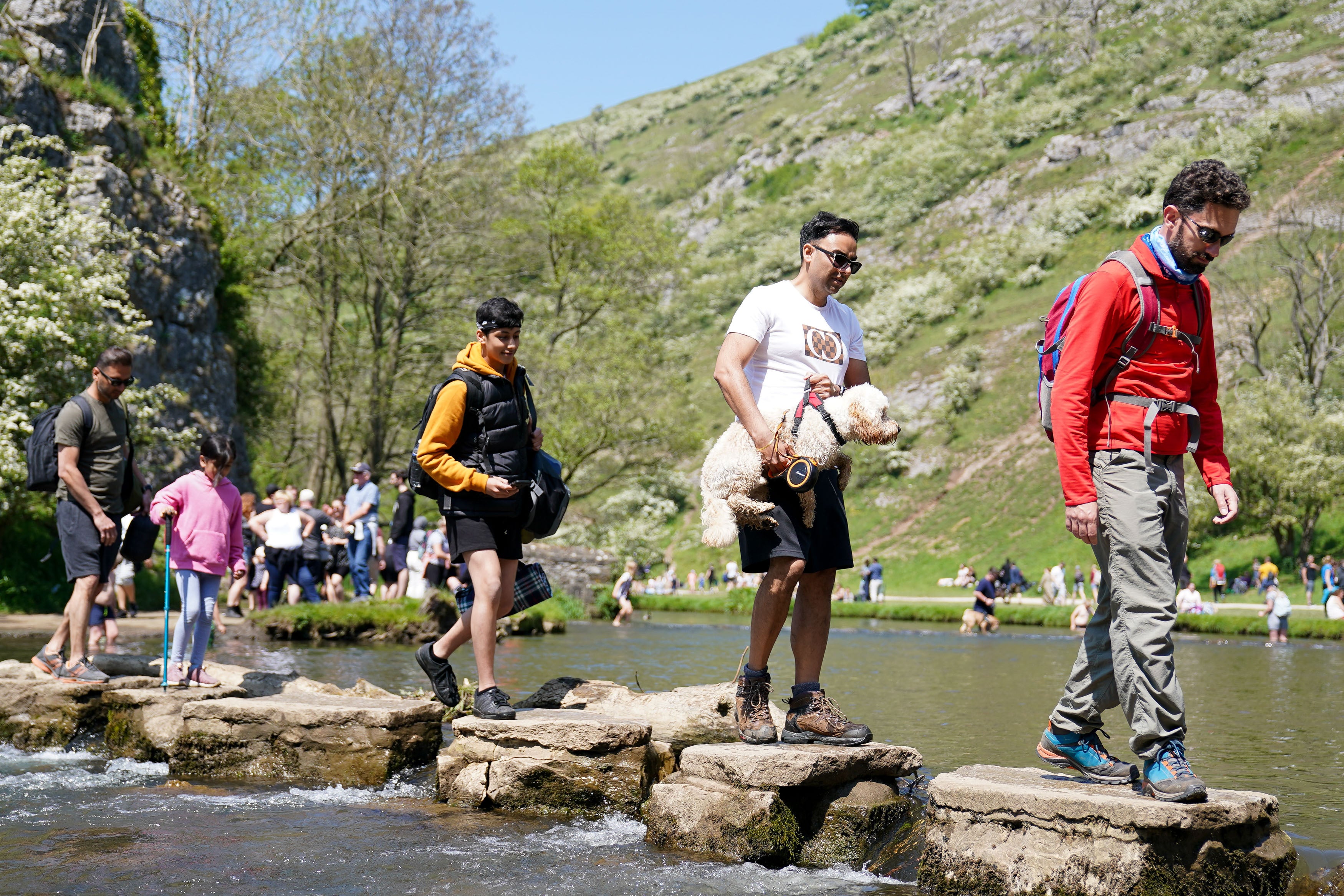Ramblers to recreate 1932 protest over countryside access for people of colour
An MP said 92% of England’s land is privately owned and not available to access.

Your support helps us to tell the story
From reproductive rights to climate change to Big Tech, The Independent is on the ground when the story is developing. Whether it's investigating the financials of Elon Musk's pro-Trump PAC or producing our latest documentary, 'The A Word', which shines a light on the American women fighting for reproductive rights, we know how important it is to parse out the facts from the messaging.
At such a critical moment in US history, we need reporters on the ground. Your donation allows us to keep sending journalists to speak to both sides of the story.
The Independent is trusted by Americans across the entire political spectrum. And unlike many other quality news outlets, we choose not to lock Americans out of our reporting and analysis with paywalls. We believe quality journalism should be available to everyone, paid for by those who can afford it.
Your support makes all the difference.A group of ramblers will recreate a 90-year-old protest on Sunday to argue the UK Government is doing “nowhere near enough” to improve access to the countryside for people of colour.
The Right to Roam campaign is celebrating the 90th anniversary of when hundreds of activists trespassed on Kinder Scout in the Peak District in 1932 to demonstrate against being denied access to areas of open country in England and Wales.
Although the Countryside and Rights of Way (CRoW) Act 2000 gives a legal right of public access to mountains, moorland, heaths, commons and the English coastal path, campaigners have asked for it to be extended to cover rivers, woods and green belt land.
Protesters from the Kinder in Colour event also said access to open land comes down to a “postcode lottery”, which can make it harder for people of colour to enjoy the outdoors.
Event organiser Nadia Shaikh said: “For black and POC, that cut is even deeper. It’s not just the lack of access in terms of legal rights, it also comes down to social determinants like do you live near these places and can you afford to get to them.
“Racism in the outdoors and that sense of feeling like you don’t belong is huge in the BPOC community. So we’re coming together as hundreds of black and people of colour to mark that anniversary and to highlight those issues that still exist and acknowledge that being in nature and outdoors is such a fundamental part of who we are culturally.”
The trespass comes in response to the Government’s shelving of the “right to roam” report.
Currently 92% of England’s land is privately owned and not available to access, according to Caroline Lucas, MP for Brighton Pavilion.
Environment minister Rebecca Pow said on Thursday that there were no plans to release the review, which Ms Lucas said was “profoundly disappointing”.
The review, headed by Lord Agnew, had included a potential expansion of the much-fought-over “right to roam”, which campaigners fear will not now go ahead.
The Right to Roam campaign is planning a series of mass trespasses between May and September, including in Totnes on May 8 and West Berkshire on May 14, with more to follow.
Ms Shaikh added: “There’s been a lot of backlash online with people saying all of this isn’t needed. This is the point of view from people who have had the privilege of growing up where they live near these areas.
“But for a lot of people that I talk to, children and descendants of immigrants from countries where they’ve previously lived, nature has been something more passive and more biodiverse. That idea of going out to visit nature is a very British thing and quite westernised and not part of people’s cultural heritage.”
The organiser said that despite making up 13% of the UK population, black people and people of colour (BPOC) make up only 1% of visitors to national parks, adding that just 39% of people from BPOC backgrounds live within a five-minute walk to green spaces compared with 58% of white people.
“It’s quite nuanced and there’s many complex layers as to why access isn’t a thing. The point is, this is a huge problem and it needs addressing immediately,” Ms Shaikh said.